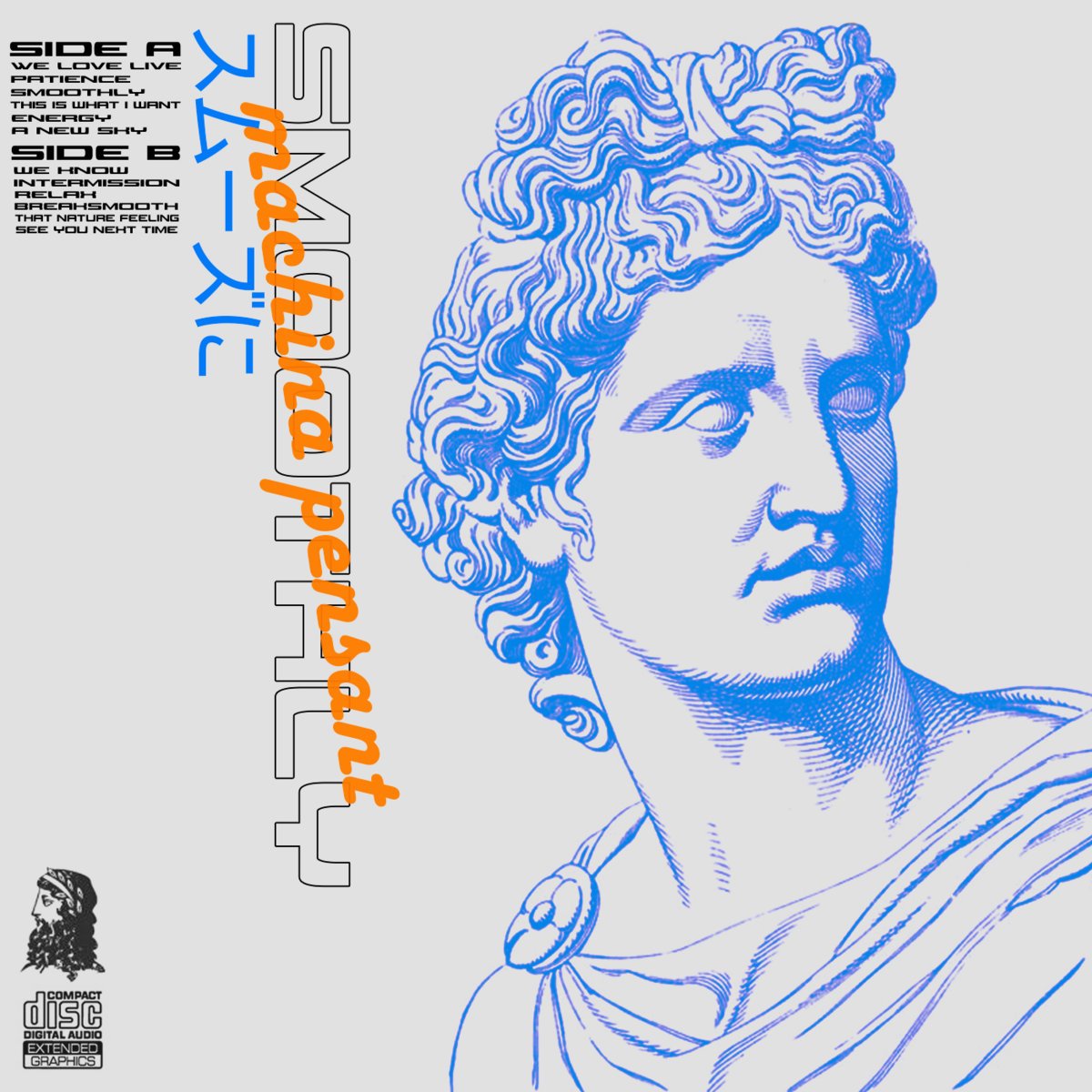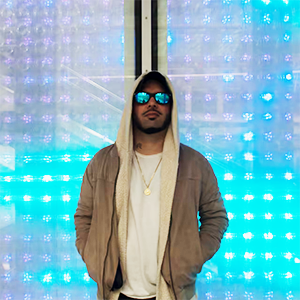Barber Beats: The Future of Vaporwave
What are Barber Beats?
Barber Beats are simply a sub-genre of the micro-genre Vaporwave, or a spin-off, whatever. It was coined by Aloe City Records to refer to Haircuts for Men, who is often credited with popularizing the style and aesthetic. The sub-genre as an established style began gaining notoriety in early 2022, making it one of the newest iterations of Vaporwave. The style tends to be heavy on bass and have a slant towards melodic, not chaotic, and typically doesnt sound like a warbled melted tape in a broken deck like much of what Vaporwave is known for embodying, much to the chagrin of the self-styled vaporwave community. Inspiration for Barber Beats comes from a wide variety of other genres like downtempo, trip-hop, lounge, world music, jazz, house, or just about anything.
The open format for the style is a refreshing exodus from what Vaporwave was in the past, which traditionally sampled only 80s/90s smooth jazz, muzak, Italo disco, city pop, ect. I can play some Barber Beats out in the open and not feel like a muppet when people ask me what I’m listening to. Maybe it’s just that Vaporwave itself sounds so pitifully dated, even the newer stuff, and mostly just a remnant of the 2010s that doesn’t really fit into modernity. Peoples’ taste evolves over time, and so I think Vaporwave, as much as some try to keep it going, is dead, real dead, not trendy slogan dead. It feels to me Barber Beats might be the future of what Vaporwave will become as more artists adopt the style.
As a critic of contemporary Vaporwave, I have found something of a newfound appreciation for the production techniques because of Barber Beats, which in my opinion pushes genre into a more adult direction sans the colorful idiotic dribble of Vaporwave that emphasizes a silly ironic constant feeling of everything being a joke and or anime reference. I think this newer style is a direct answer to Vaporwave of the past, which doesnt need audio/visual traps layed like the older artists set in their heyday. Maybe this is why this newer style makes fans of the older stuff annoyed, because they are no longer at the forefront of the scene.
Barber Beats might also just a joke, but one with a punchline that doesn’t leave you feeling like you’ve heard it before. Sure, some will say it’s just more of the same, but clearly it isn’t, as it struck a nerve in the Vaporwave community and some want it abolished completely, which I find hilarious. Overall, the sound is varied in a good way, and I can hear many influences such as DJ Krush, Thievery Corp, Kruder and Dorfmeister, Nightmares on Wax, Buddha Bar, and generally a good late 90s/early 00s vibe.
Why Do Some People Hate Barber Beats?
Barber Beats occasionally plunders samples, or even whole tracks, from other Vaporwave artists which really ‘upsets’ some people because they feel it’s ‘low effort'. The vitriol is expected whenever anything different or new is introduced into the Vaporwave community that doesnt adhere to the doctrine of the more well-known sound defined by the genre’s forerunners. I think many in the community feel Barber Beats stealing samples, or whole tracks, from Vaporwave artists to edit them is somehow wrong, while somehow ignoring the last decade’s worth of vaporwave producers doing the exact same thing to other genres, but I digress. Self-described vaporwavers can be some of the most gatekeep-y types and believe their inner cabals on certain social media platforms to be the end-all of the scene that no one can bypass.
This is what makes Barber Beats so deliciously enjoyable; that it can subvert what people think vaporwave should be, or is allowed to be. It was only a matter of time before what was understood as vaporwave, conceptually, would start to evolve, and this process has led to a paradoxical moment where vaporwave itself is becoming the source material for newer vaporwave. If I say vaporwave one more time my head is going to explode, so enough about that shit. Let’s listen to some Barber Beats.
Oh, the irony!
Whats the Barber Beats aesthetic?
I feel as though the 2010s were the age of excess, more is more, and anything goes kind of aesthetic. The wild and carefree days of yesteryear have been replaced with a more down-to-earth envisioning of contemporary times in their dire circumstances that see constant global disasters, wars, plagues, and economic bullshit. People are clearly tired, and during the pandemic many hit rock-bottom in many ways socially, physically, financially, and that leads to a re-assessment of what we want out of life. Sometimes we find that less is actually more, and minimalism is more on brand with current times. This is why I like the Barber Beats aesthetic. It takes the tired tropes of Vaporwave and subtracts the wonky, bloated, disney-esque visual superfluousness of the aesthetic and leaves a bare, stripped-down kind of elegance in sometimes raw and deconstructed ways that doesnt need to scream at your eyes to get your attention. The roman busts are back in style, but this time with a more classy edge; a sophisticated ‘cut’ if you will that sometimes include peeled stickers, de-saturated images juxtaposed with solid colors and simple patterns. It vaguely reminds me of The Smiths cover artworks, (no, not Will and Jada Smith), I’m talking about the 80s band for all you zoomers who may not know what I’m referring to.
What are some good Barber Beats?
The genre has a lot to offer currently, and I’m sure a lot more is in the works now that word is out that it annoys Vaporwavers. Below are some choice cuts, but do check out the Bandcamp tag for some other great artists, and show them some love.
Final Thoughts
Everything changes. Nothing stays the same. This adage will always remain true, no matter how much some people will fight the current, they will always be swept away by it. Music styles sometimes emerge as a reaction to something else, and Barber Beats seems to be a reaction to its predecessor, which has grown frigid and stale. The flagbearers of the past can barely wave their standard in the air anymore from how tired they’ve become of the sounds that they once championed but now weigh heavy on them. With these new days, people seek out refuge from the doldrums of the past, to envision a new future that is free from the shackles of what once was. - Van
[edited 6/9/22]
AUTHOR
Van Paugam is an Internationally-Acclaimed DJ and leading figure specializing in 70s and 80s Japanese Music, dubbed City Pop. He has organized and hosted over 100 events dedicated to the style, and actively promotes Japanese culture while on the board of the Japanese Arts Foundation of Chicago. He has been featured on CNN, NHK, and many other publications for his dedication to City Pop. Van is credited with being the first person to begin popularizing City Pop online through his mixes on YouTube in 2016, and subsequently through live events. Learn More…
















![Tomoko Aran - Fuyu Kukan [2024 Reissue]](https://images.squarespace-cdn.com/content/v1/5bd7707c11f7847c45b4b9dd/1689118417870-VK5509S75OAQ8XLR9TEG/ab67616d0000b273138d0143d948a5314d1aea19.jpg)
![Kingo Hamada - Midnight Cruisin' [Reissue]](https://images.squarespace-cdn.com/content/v1/5bd7707c11f7847c45b4b9dd/70b59ba1-850e-4a6d-a827-34e221a172bf/WQJL-159.jpg)
![Mioko Yamaguchi - Tsukihime Moonlight [Reissue]](https://images.squarespace-cdn.com/content/v1/5bd7707c11f7847c45b4b9dd/1688493110328-NTAQQVZ245PY48X3I6H4/MHJL-278.jpg)
![Yurie Kokubu - Steps [Reissue]](https://images.squarespace-cdn.com/content/v1/5bd7707c11f7847c45b4b9dd/1688492253619-240QYD9A83G0GLRKQ08U/MHJL-282.jpg)
![Anri - Natsu Ban [New EP]](https://images.squarespace-cdn.com/content/v1/5bd7707c11f7847c45b4b9dd/1687905964336-9PV1QDIP2YNMEKDHS14R/Screenshot+2023-06-27+174101.png)
![Anri - COOOL [Reissue]](https://images.squarespace-cdn.com/content/v1/5bd7707c11f7847c45b4b9dd/1682575601801-C2BEL9RM2RUHJS9OBSL1/ab67616d0000b27339b329eaf36f09af3c2356f4.jpg)
![Anri - Timely!! [Reissue]](https://images.squarespace-cdn.com/content/v1/5bd7707c11f7847c45b4b9dd/1682575330424-OPVMZCJ0GUYHW6P0X5UT/R-5126669-1638115528-6607.jpg)
![Anri - Heaven Beach [Reissue]](https://images.squarespace-cdn.com/content/v1/5bd7707c11f7847c45b4b9dd/1682574623734-QWHWV5NQSM71KRKK8K6G/R-4777778-1618165602-9892.jpg)
![Anri - Bi Ki Ni [Reissue]](https://images.squarespace-cdn.com/content/v1/5bd7707c11f7847c45b4b9dd/1682575025867-NBUJHCR4R997RWTHJ71K/R-6161494-1640871595-6430.jpg)
![Miki Matsubara - Pocket Park [Reissue]](https://images.squarespace-cdn.com/content/v1/5bd7707c11f7847c45b4b9dd/1682919786676-RDDRQMQ80QIJP8SD61JS/IMG_8996.jpeg)
![Miki Matsubara - Who Are You [Reissue]](https://images.squarespace-cdn.com/content/v1/5bd7707c11f7847c45b4b9dd/1682919471387-FEXQME3R87Z0GGN8OM30/IMG_8995.jpeg)
![Taeko Ohnuki - Mignonne [Reissue]](https://images.squarespace-cdn.com/content/v1/5bd7707c11f7847c45b4b9dd/1677631540050-MB8QQ48ZP5NKH0P9F61Z/31qFb8S%2BGKL.jpg)
![Tatsuro Yamashita - Go Ahead [Reissue]](https://images.squarespace-cdn.com/content/v1/5bd7707c11f7847c45b4b9dd/1677630549318-VK4691LKREAD8ILYCDTG/BVJL-93.jpg)
![Yurie Kokubu - Relief 72 Hours [Reissue]](https://images.squarespace-cdn.com/content/v1/5bd7707c11f7847c45b4b9dd/1677629440079-6RWRK2ZWERH37N9Y30KE/%E5%9B%BD%E5%88%86%E5%8F%8B%E9%87%8C%E6%81%B5-yurie-kokubu-relief-72-hours-Cover-Art.jpg)
![Momoko Kikuchi - Tropic of Capricorn [Reissue]](https://images.squarespace-cdn.com/content/v1/5bd7707c11f7847c45b4b9dd/1674797802522-6G0J6KOSVEHW51M7EIWH/Tropic+of+Capricorn.jpg)
![Momoko Kikuchi - Ocean Side [Reissue]](https://images.squarespace-cdn.com/content/v1/5bd7707c11f7847c45b4b9dd/1674798147688-5U1MW4DHPF1JJCB97Q5Z/Ocean+Side.jpg)
![Momoko Kikuchi - Escape From Dimension [Reissue]](https://images.squarespace-cdn.com/content/v1/5bd7707c11f7847c45b4b9dd/1674797753044-X7EKMKXREYA8ZSZD1DAA/escape+from+dimension.jpg)
![Momoko Kikuchi - Adventure [Reissue]](https://images.squarespace-cdn.com/content/v1/5bd7707c11f7847c45b4b9dd/1674797693224-VN0M90A8BM9LPTYWBSB5/Adventure.jpg)
![Hitomi Tohyama - Imagination [Reissue]](https://images.squarespace-cdn.com/content/v1/5bd7707c11f7847c45b4b9dd/1674797015412-B47AFOTZHWA2CO5BUMAA/Imagination.jpg)
![Hitomi Tohyama - Sexy Robot [Reissue]](https://images.squarespace-cdn.com/content/v1/5bd7707c11f7847c45b4b9dd/1674714815791-4KT0NM9S4ED18FLQKHKC/sexy+robot.jpg)
![Tatsuro Yamashita - Greatest Hits [Reissue]](https://images.squarespace-cdn.com/content/v1/5bd7707c11f7847c45b4b9dd/1674713862344-KZQM2GX3TF0Y8XODXT1P/R-3282359-1533691121-1914.jpg)
![Tatsuro Yamashita - For You [Re-Press]](https://images.squarespace-cdn.com/content/v1/5bd7707c11f7847c45b4b9dd/1674713532165-3F6PUTT1U16F9RKFDKCQ/R-2179374-1576817857-6649.jpg)
![Tatsuro Yamashita - Ride On Time [Reissue]](https://images.squarespace-cdn.com/content/v1/5bd7707c11f7847c45b4b9dd/1674713298310-CX7AAYGDCK9VRC09V8F7/R-3282392-1341996717-7068.jpg)
![Tatsuro Yamashita - Moonglow [Reissue]](https://images.squarespace-cdn.com/content/v1/5bd7707c11f7847c45b4b9dd/1674712985847-GAAP57FYG3W34MT0KX6Z/R-2063296-1594137375-1639.jpg)
![Tatsuro Yamashita - It's A Poppin' Time [Re-Press]](https://images.squarespace-cdn.com/content/v1/5bd7707c11f7847c45b4b9dd/1674711577552-6OG8AHZTL0A0VMOFACE6/R-5223079-1601375868-4345.jpg)
![Tatsuro Yamashita - Spacy [Reissue]](https://images.squarespace-cdn.com/content/v1/5bd7707c11f7847c45b4b9dd/1674711439752-GP5PA47QCYGU14Q1F8I9/R-1006498-1322902455.jpg)
![Tatsuro Yamashita - Circus Town [Reissue]](https://images.squarespace-cdn.com/content/v1/5bd7707c11f7847c45b4b9dd/1674710622935-WAUHPKKQAQSUPFH8NC0G/BVJL-95.jpg)


Barber Beats are simply a sub-genre of the micro-genre Vaporwave, or a spin-off, whatever. It was coined by Aloe City Records to refer to Haircuts for Men, who is often credited with popularizing the style and aesthetic. The sub-genre as an established style began gaining notoriety in early 2022, making it one of the newest iterations of Vaporwave.